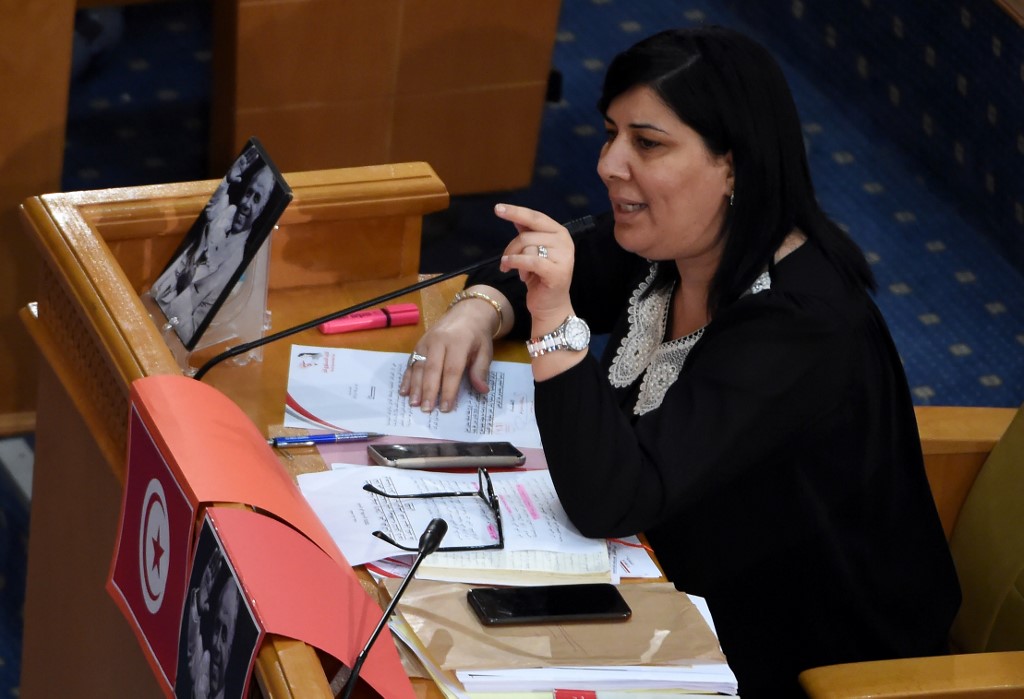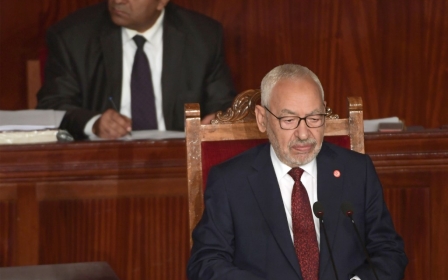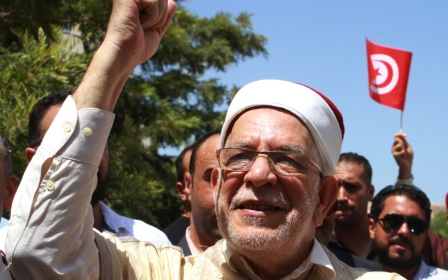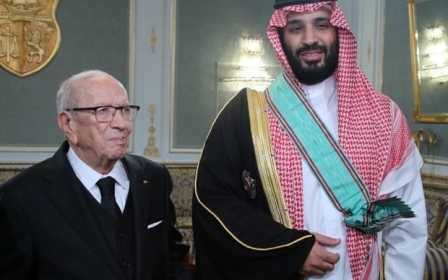Tunisia: Ghannouchi vote reveals combined threat to Ennahda

No doubt, the recent failed attempt to remove Rached Ghannouchi as parliament speaker represents a political victory for Ennahda - but it has also fuelled tensions in the complicated conflict gripping Tunisia’s political scene, which could endanger the stability of the only Arab democracy.
The strategy of Abir Moussi, a pro-old-regime politician, is aligned with a regional counter-revolutionary strategy that has as its immediate target Ghannouchi’s leadership in parliament, as part of a long-term goal to eradicate Ennahda from the political scene.
Even some friends of the party are suggesting that Ghannouchi should resign swiftly, rather than opening the doors for a major symbolic victory for the counter-revolution
This target was almost achieved through a no-confidence vote on 30 July, although Moussi’s 16 MPs could never bring him down alone. But a total of 73 MPs came together, the necessary minimum to start the procedure, many from parliamentary blocs usually in conflict with Moussi. In the final vote, some 97 out of 217 members of parliament voted against Ghannouchi.
This revealed the real threat facing Ghannouchi. Moussi is only one facet of the Tunisian equation; the internal political conflicts in the country are far more complicated than one person alone.
The tensions leading to the 30 July no-confidence vote had built slowly but surely from many directions. Firstly, Moussi put on her usual show, preventing plenary sessions from convening and “occupying” the offices of Ghannouchi’s chief of staff. All of this was publicised heavily on social media and Saudi-Emirati channels.
Then came the implosion of the government coalition amid controversial conflict-of-interest allegations involving Prime Minister Elyes Fakhfakh. Ennahda, which had already resisted joining the coalition without its parliamentary partner, Qalb Tounes, and asked repeatedly to “expand” the coalition, last month tabled a motion of no-confidence against Fakhfakh. It immediately spurred his resignation, leaving the initiative to choose a new head of government in the hands of President Kais Saied.
Retaliatory motion
It is in this context that the other components of the government coalition decided to retaliate with a motion of no-confidence against Ghannouchi. This led to a coalition, though temporary, between Moussi and a large number of MPs, many of whom would usually try to stay away from her bloc.
The no-confidence move against Ghannouchi shows the essential difference in tactics between Moussi and other opponents of Ennahda. While Moussi sees any tool as legitimate to disrupt the workings of parliament, including unlawful acts, other forces that believe in the constitution and the democratic system - some of whom were hand-in-hand with Ennahda in fighting former President Zine El Abidine Ben Ali’s dictatorship - use the mechanisms provided by the constitution and the law in their political conflicts with Ennahda.
Effectively, we have two types of conflict: one represented by Moussi and the counter-revolutionary axis, which targets Ennahda to destabilise and threaten Tunisia’s democracy, and another that can be categorised within the framework of “democratic conflict”. The 30 July session showed that the two processes can meet sometimes - and this is probably not the last time.
It is likely that the deep rift between Ennahda (and its two main parliamentary allies, the Karama coalition and Qalb Tounes) and the other main blocs will continue in the months ahead, meaning that we could see another no-confidence vote. Negotiations over the new government have further fuelled tensions.
A risky bet
Although the failure to remove Ghannouchi on 30 July was a political victory for Ennahda, it showed that it is in a fragile coalition. Qalb Tounes was hesitant until the last minute, and seemingly instructed its MPs to vote with “yes and no”, making their votes obsolete.
By betting all its cards on the parliament speaker, Ennahda put itself in a very difficult position. Even some friends of the party are suggesting that Ghannouchi should resign swiftly, rather than opening the doors for a major symbolic victory for the counter-revolution.
The views expressed in this article belong to the author and do not necessarily reflect the editorial policy of Middle East Eye.
Middle East Eye propose une couverture et une analyse indépendantes et incomparables du Moyen-Orient, de l’Afrique du Nord et d’autres régions du monde. Pour en savoir plus sur la reprise de ce contenu et les frais qui s’appliquent, veuillez remplir ce formulaire [en anglais]. Pour en savoir plus sur MEE, cliquez ici [en anglais].






